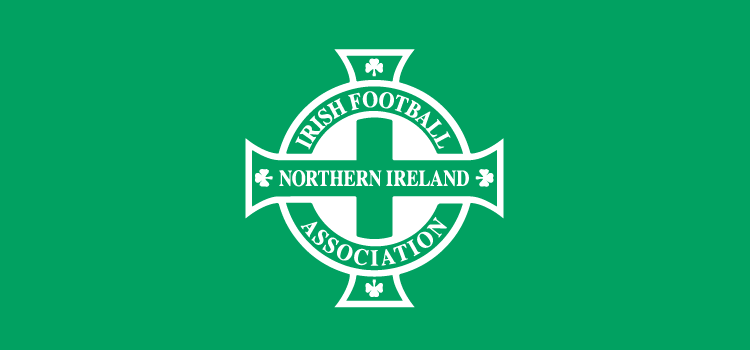In the last article in the series we had a look at the first decade in Distillery’s history on the pitch and the clubs Irish Cup successes but there were a number of other interesting things that happened in the first decade in the history of Distillery both on and off the pitch. In this article we’ll be having a look at the clubs ventures in the FA Cup, making history against foreign opposition, the first experiment with floodlights but first we’ll look at the clubs iconic nickname.
In the first few years of the club’s history the team had a variety of nicknames such as ‘The Grain Trampers’ (a reference to workers in the distillery who tramped the malt) and ‘The Broadwaymen’ (a reference to were the team played) but by the late 1880’s the team was simply referred to as ‘The Whites’ due to the colour of their kit (whites shirts and normally black shorts). Other names such as ‘The Flour Bags’ and ‘The Lily Whites’ have been used at various teams but it was ‘The Whites’ is the name that has stuck with this day. Interestingly though the club originally wore royal blue shirts in the early years of the clubs history, quite why the club changed its colours is not known but there is a legend that in the mid 1880s Linfield borrowed Distillery’s kit and it was never returned.
During the 1887/88 season Distillery participated in The English Cup (now known as the FA Cup) and in the first qualifying round were drawn away to Blackburn Park Road, the English side were victorious but were then disqualified from the tournament and Distillery went on to play Witton in the next round, losing 4-2. Two seasons later Distillery qualified for the first round of the FA Cup after beating YMCA and Linfield in local qualifying ties and they were drawn away to Bolton Wanderers but lost heavily 10-2. Distillery played a number of teams from outside Ireland in the 1880s including Dundee Harp, Glasgow Celtic and became the first Irish team to win a ‘foreign’ match when on Christmas Day in 1889 they played Newton Heath (now known as Manchester United) and overcame them 2-1.
In the mid 1900s Distillery would be recognised as true pioneers in terms of floodlit football coming to Ireland but Distillery were in fact involved in a match under lights on the 19th December 1889, after a couple of failed attempts, Cliftonville and Distillery played a match at Solitude using ‘Lucigen Light’. The Lucigen Light was a portable device that was operated by compressed air with light appearing as a large flame about 6 inches in diameter and 26 inches high. Unfortunately no serious football could be played under the lights as every now and then the lights would go out and the ball would disappear, some played allegedly even picked the ball up and simply held it in their hands until the lights came back on again. It was the consensus that while there may have been some merit in floodlight football more lights would be required for concept to be feasible, only four Lucigen Lights were used in this match, and the idea was shelved for the time being.
